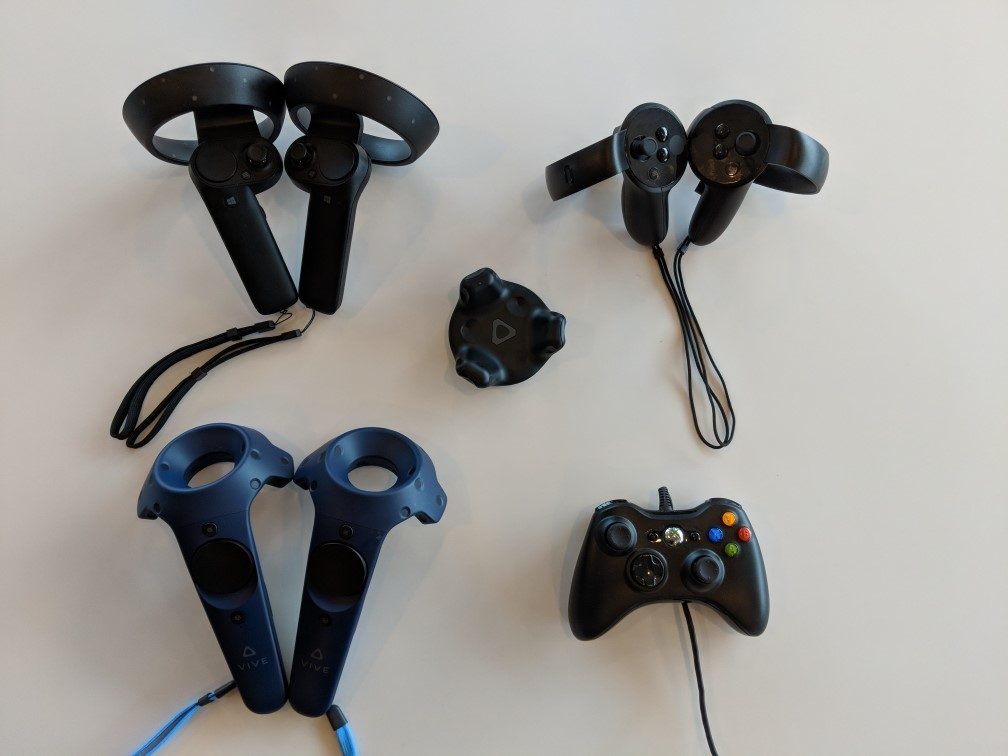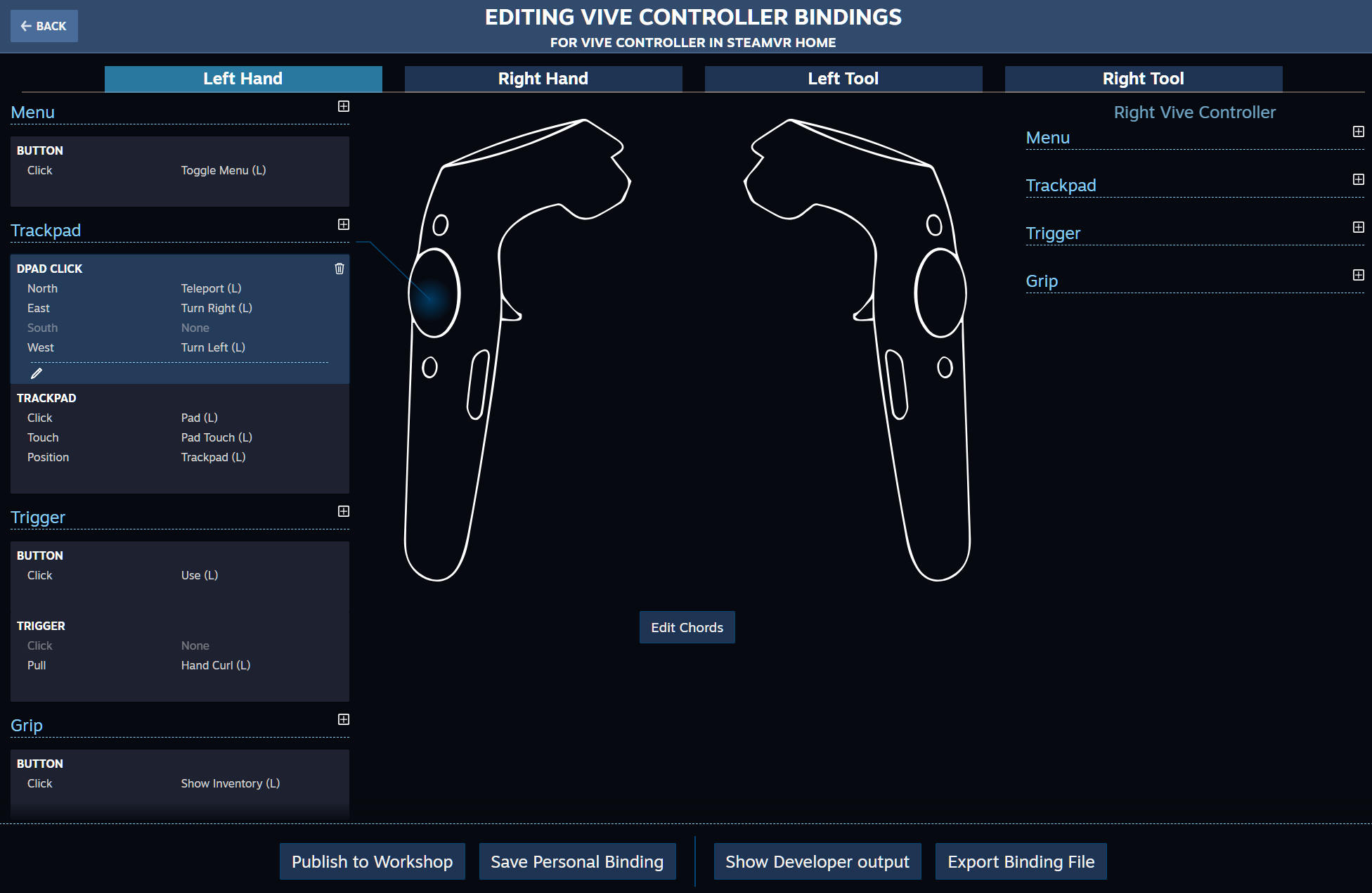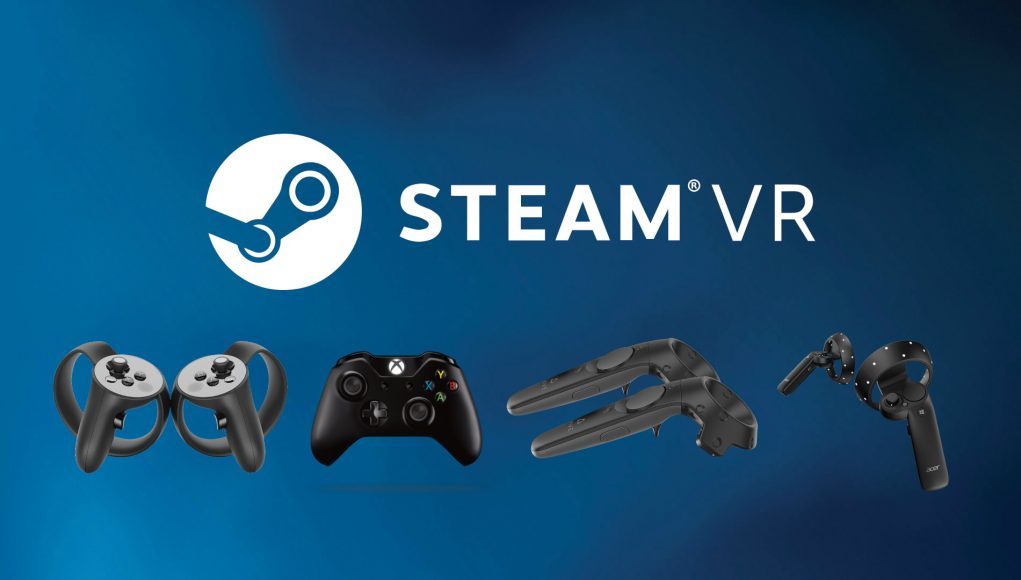SteamVR includes de facto support for several VR devices, although sometimes games just don’t support a particular controller—or if they do, it may not be configured properly. To remedy this, Valve has introduced a new SteamVR Input system, now in beta, that will let users create their own controller bindings and share them, so any game can hypothetically add support for any SteamVR-compatible controller, past, present or future.
Announced by Valve’s Joe Ludwig via a Steam forum post, SteamVR Input lets you build controller bindings for any game, “even for controllers that didn’t exist when the game was written.” Supported controllers include the XBox One gamepad, Vive Tracker, Oculus Touch, and motion controllers for HTC Vive and Windows “Mixed Reality” VR headsets, although we expect there are plenty more SteamVR-compatible peripherals out there that will make their way into Valve’s keybinding system.

Ludwig highlights a few use cases, including controls for left-handed people, those with physical disabilities, or even just personal preferences—like re-binding a strangely-placed start button to a more convenient place.
Key bindings will also be sharable on the Steam Workshop so others can quickly download and implement them.
Starting today, Valve will include the controller binding Input system directly into SteamVR beta. To try it out (expected later today), simply activate the SteamVR beta branch, which you’ll find under Library, and then Tools. Right-click SteamVR, and then click Properties. Then select the Betas tab to opt-in.
Valve says it also works even if the developer of a particular game/experience/app hasn’t updated it to the new system yet.
The SteamVR Input beta comes with a fairly simple in-headset UI, which can be found at the bottom of the SteamVR Settings menu while wearing a VR headset.

As for developers, the SteamVR Input system lets devs more easily define default bindings for each controller type, and also offer “alternate control schemes directly without the need to change the games themselves.”
All of this essentially lets anyone define their own way of physically interacting with a SteamVR-supported game, and further closes the gaps in what’s touted as a hardware agnostic VR software platform.







